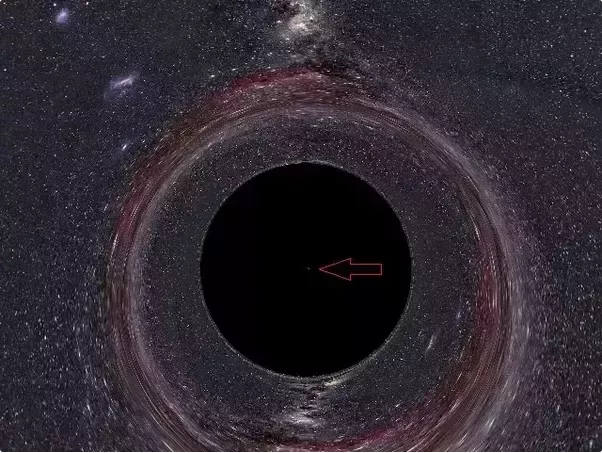Supermassive Black Holes May Be Ruining Potentially Habitable Planets By Destroying Their Atmospheres

Scientists have discovered black holes may be doing more damage to their surroundings than originally thought. A study published this month shows quasars may be responsible for disappearing atmospheres in our galaxy along with the rest of the universe.
Quasars are the cores of active galaxies and are made up of supermassive black holes, NASA said. These bright, star-like objects are far away in space but give off powerful radio waves. The study reveals just how these quasars and black holes actually impact the planets around them.
Read: Scientists Watch Star Become Black Hole, But They Were Expecting Supernova
The study revealed about 50 percent of all planets in the universe could lose the equivalent of the atmosphere on Mars and 10 percent may lose the equivalent of Earth’s atmosphere due to these quasars. The loss of atmosphere occurs because the quasars create an energy transfer that causes the makeup of the atmosphere to disappear.
Essentially, the supermassive black holes are accompanied by light that grows brighter and brighter due to gas. When it gains this light, it can outshine stars in the area. That light can illuminate the atmosphere of planets and subsequently transfer energy to the particles that make up the atmosphere. When that happens, those particles then have the energy to leave the atmosphere because they can break free of the gravitational pull, the study found.
Read: The Future Of The Sun: Massive Black Holes Dwarf The Entire Solar System
This means the level of atmospheric loss a planet experiences is impacted by how large the planet and the galaxy are. The more mass, the stronger the gravitational pull and the more energy the particles will need to break free; the higher the mass, the lower the chances are for a large atmospheric loss.
With this information the researchers in the study, John C. Forbes and Abraham Loeb, wrote: “Based on this relationship, we can estimate the probability distribution function of mass loss, i.e., the probability a random planet in the universe will be subject to a given amount of mass loss, as a function of redshift, mass, and the stellar component in which the planet’s host star resides.”
What this means for habitability is that whether a planet is habitable, or once was, could have something to do with the black holes in the area. This could be an explanation for why a planet like Mars seems to have had life on its surface at some point but no longer does. If it once had a thicker atmosphere, maybe something more like Earth, it would have been better suited to sustain life and liquid water. But this is still speculation. While the findings can’t give an exact outcome on habitability, they open doors for more research on the subject and the possibility for a universe where black holes could be responsible for a loss of atmosphere.
© Copyright IBTimes 2025. All rights reserved.




















